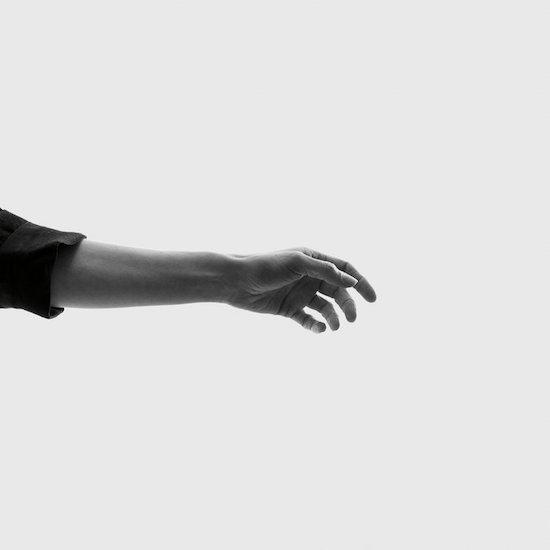Listening to Limbs, I begin to wonder if Forsyth is the first truly grown-up post-Covid artist. Definitely, here is a serious, heavyweight performer for this late starting decade, who may be important, and who may stop you dead. The album unfolds into a stretched out, minimal work of slow burnt cream. Synthesized and natural accompaniment co-exists as a kind of ache, with occasional echoing thumps of rhythmic pulse that never quite coalesce into an actual beat, just boom and scrape away in the distance.
Sometimes it’s like the quiet moments of Erased Tapes type artists or, say, the Jon Hopkins bits in between the bursts of club trance, or even late period Talk Talk in their most glacial, unadorned interim sections, before the songs get going. It’s paced similar to that Mark Hollis solo record. But at other times Limbs leans closer to translucent slowcore, with hints of mid-period Low.
Matthew Bourne, Forsyth’s principal arranger on 2020’s Debris, still contributes to Limbs but now Forsyth’s main collaborator is Ross Downe, who supplies beautiful drone work and co-produces to the extent that he’s even involved with some of the visuals. The pair have made a record that feels bigger and cleaner than Debris, even when less is actually going on. Somehow, these arrangements are both at once more ghostly, yet more expansive. So organically confident, compositionally, that almost nothing needs to happen at all.
Meanwhile, everything sits behind the gathering force of Forsyth’s vocal work. This is how the minimalism is so effective: the moment she sings, right from the opening line, I realise I’m feeling a kind of fierce relief at how plain different her voice is to current vogue styles. Keeley Forsyth sings like a Barbara Hepworth in a field in Yorkshire with sheep nearby. She’s stately and timeless, raw and potent. If she were to break through to a wider audience, Forsyth is the sort of singer who might trigger a major awakening shift in vocal trends, endangering a swathe of perfectly reasonable alt-pop singers, simply via starkness of contrast. Suddenly, we’re all so vividly aware of how samey everything became, we can’t turn back. That’d be glorious.
Carefully, Keeley Forsyth under-uses her powers. She has an earthy, quasi-operatic vibrato and sheer gravitas that reminds me of two of my very favourite singers of all, Lisa Gerrard and June Tabor. Musically, Limbs lands closer to Gerrard’s orchestrations than Tabor’s austere folk music, yet it does evoke the synth-led tracks on Tabor’s Aqaba. So maybe it’s more of a potential of folkness – on ‘Blindfolded’ and title track ‘Limbs’, both of which start briefly a-cappella before the instrumentation eases in. You could nod to the Unthanks, or Lankum’s long, dramatic jamming. Kathryn Joseph lives in this space too.
When the releases of pent up emotion come, they’re wonderful, like in the chorus of ‘Bring Me Water’. Later, ‘Wash’ adds master percussionist Evelyn Glennie to the mix, who provides the album’s loosest, most natural sounding rhythm track but could easily go unnoticed.
It seems a bit crass to discuss Forsyth’s significant (two decades plus) acting career, which was flourishing long before we heard this music. Perhaps I ought to leave it alone altogether – but she played the compelling drug addicted sex worker ‘Annette’ in Happy Valley. For 90s kids she was ‘Nicky’ in The Biz, for fuck’s sake. Immersed in a record as uncompromising and overwhelming as Limbs, it’s delightfully incongruous to realise that twenty years ago, one might’ve switched on an episode of Celebrity Family Fortunes, with the casts of Peak Practice and Heartbeat competing against each-other, and spotted the young Forsyth in her other universe.
Limbs is not perfect. It’s slippery, to the point that I’m certainly missing stuff, because it’s not as easy to decode lyrics and intent, as for more conventional performers. I imagine dry humour but can’t quite prove it. I start to worry that this might be too po-faced in its intellectualism, in Adam Curtis style. The only other artists named in the press release, in a quote from Forsyth herself, are the French avant-garde theatre icon Antonin Artaud and the German dancer Pina Bausch (and choreographed movement is clearly a very important element of Forsyth’s live performance). So, an unabashed cultural mind at work that is thrilling, yet plays on one’s insecurities as a listener. Also, Limbs is short. Eight tracks, none reaches four minutes, meaning that one is left wishing for more. Of course, none of that is remotely a problem, unless one decides it is. In its fullness and emptiness, all at once, Limbs is an album that dares the listener not to fall for it. Keeley Forsyth is a world builder and Limbs is an outstanding record.


